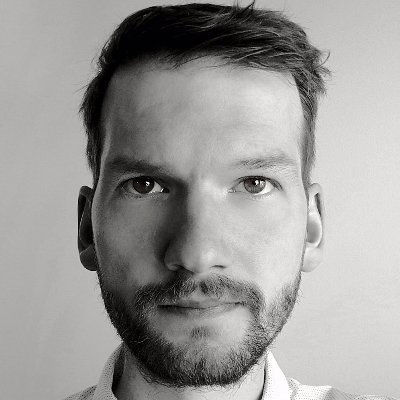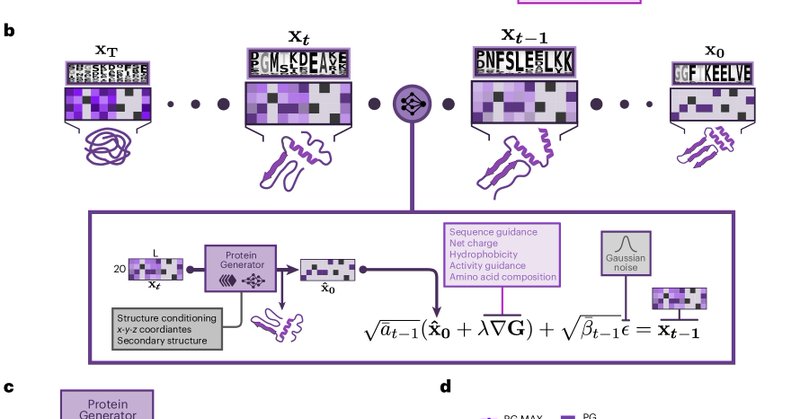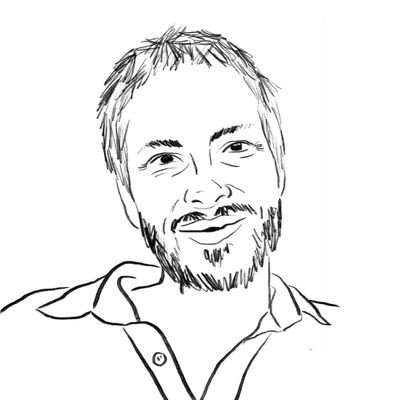
Benjamin Wild
@nebww
Followers
234
Following
465
Media
21
Statuses
91
Postdoc @ Berlin Institute of Health at Charité Machine Learning for Healthcare Previously @ Dahlem Center for Machine Learning and Robotics
Berlin
Joined March 2014
RT @NeurIPSConf: NeurIPS is pleased to officially endorse EurIPS, an independently-organized meeting taking place in Copenhagen this year,….
0
114
0
RT @SymposiumML4H: 🚨 Machine Learning for Health (ML4H) is back and better than ever!.🌴 Join us in San Diego on December 1–2, 2025, right b….
0
10
0
RT @Lucas_Arnoldt: Current multimodal single-cell integration methods act as black boxes, lacking meaningful interpretability. We introduce….
biorxiv.org
Multi-omics technologies allow for a detailed characterization of cell types and states across multiple omics layers, helping to identify features that differentiate biological conditions, such as...
0
6
0
RT @Lucas_Arnoldt: NetworkVI is a group effort by Julius Upmeier zu Belzen, Luis Herrmann, Khue Nguyen, supervised by @fabian_theis & @nebw….
biorxiv.org
Multi-omics technologies allow for a detailed characterization of cell types and states across multiple omics layers, helping to identify features that differentiate biological conditions, such as...
0
3
0
RT @EricTopol: How does @deepseek_ai compare with other LLMs for clinical diagnosis and treatment plan—125 patient case benchmarks, not rea….
0
48
0
RT @Lucas_Arnoldt: Thrilled to share our @NatureBiotech paper “Multistate and functional protein design using RoseTTAFold sequence space di….
nature.com
Nature Biotechnology - ProteinGenerator simultaneously generates protein sequences and structures using sequence space diffusion.
0
12
0
RT @stefanhgm: Does removing unsupported facts in the training or prompting data effectively reduce hallucinations?. We tested this for GPT….
0
10
0
Amazing work from @Youssef_M_Nader!.
It has been absolutely phenomenal working on the Vesuvius Challenge. The vision from @natfriedman and the foundation layed down by Prof. Seales and his team, make me every bit grateful to have the opportunity to score this touchdown!.
1
0
3
RT @natfriedman: Ten months ago, we launched the Vesuvius Challenge to solve the ancient problem of the Herculaneum Papyri, a library of sc….
0
15K
0
RT @SteinfeldtJakob: Over the past few months, @gogothorr and I have been heads down building @PheironInc . Our platform extracts disease m….
0
4
0
RT @tlandgraf: Echo chambers in the honeybee dance communication! We automatically detected 100K waggle phases of dancing bees and found a….
0
120
0
RT @tomlincr: 💡Diffsurv: Differentiable sorting for censored time-to-event data.👏Great work from @cdt_ai_health @UCL_IHI colleagues @AndreV….
0
4
0
@SteinfeldtJakob @gogothorr @pietznerm @juluzb @AndreVauvelle @stefanhgm @SpirosDenaxas @profhhemingway @CaptainSysBio For another perspective on this work, see the thread from @SteinfeldtJakob here:
Our latest preprint, "Medical history predicts phenome-wide disease onset(, proposes a new approach to systematic risk stratification using medical history. Joint work w\ @nebww, @gogothorr, U. Landmesser, J. Deanfield, and @CaptainSysBio. A thread:.
0
0
0
Thanks to all colleagues and collaborators involved in this endeavor, @SteinfeldtJakob, @gogothorr, @pietznerm, @juluzb, @AndreVauvelle, @stefanhgm, @SpirosDenaxas, @profhhemingway, Claudia Langenberg, Ulf Landmesser, John Deanfield, and @CaptainSysBio!.
1
0
2







